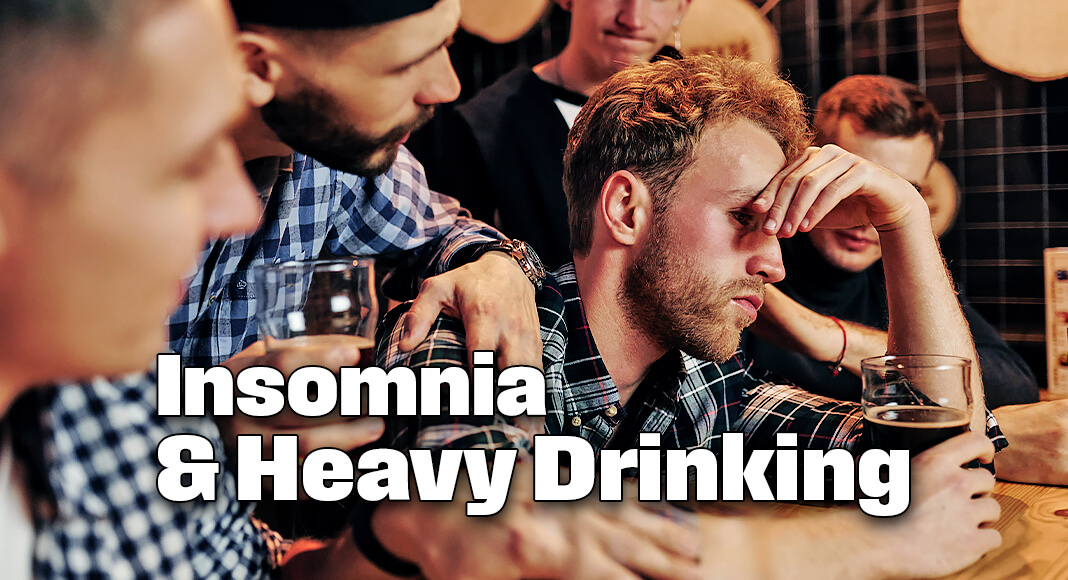
Mega Doctor News
Newswise – COLUMBUS, Ohio – Insomnia and hazardous drinking are so closely intertwined that estimates suggest at least one-third, and as many as 91%, of people who have a hard time with sleep also misuse alcohol.
A new study suggests that perceived stress and depression factor into the relationship between the two conditions – perhaps not a surprise. But because the relationship between insomnia and heavy drinking goes in both directions, the influence of stress or depression depends on which condition came first, the analysis found.
“We were most interested in how insomnia leads to drinking, and we found that seems to occur primarily through stress. But when we switched pathways, it appeared that drinking primarily led to insomnia through depression,” said Jessica Weafer, senior author of the study and associate professor of psychiatry and behavioral health in The Ohio State University College of Medicine.
“Identifying these types of mediating factors can have important treatment implications,” she said. “If people who have insomnia are experiencing a lot of stress, then if we can target the stress, that might reduce the likelihood that their insomnia would lead to heavy drinking. That’s the long-term ideal, or hope, that this work could have an impact on treatment.”
The study was published recently in the journal Alcohol.
Insomnia and hazardous drinking can cause upheaval in one’s life: Both are associated with missed work and lower productivity on the job. Chronic insomnia can increase the risk for cardiovascular disease, Alzheimer’s and other chronic illnesses. A defining characteristic of alcohol use disorder (AUD) is continuing to drink even when encountering interpersonal problems, getting sick or hurt, or driving while intoxicated.
Weafer has expanded her research focus on risks for problem drinking to address the fact that poor sleep can lead to increased drinking and those with AUD commonly have difficulty with sleep.
“The number of people with AUD who also have insomnia is very, very high. It’s striking, and important,” she said.
Participants in this study were part of a larger project testing the effectiveness of a digital insomnia intervention for people with poor sleep who are heavy drinkers. A total of 405 volunteers completed questionnaires assessing insomnia severity, current and historic drinking behaviors, perceived stress and depression symptoms.
Stress and depression often overlap, but are distinct – the stress scale measures the degree to which situations in life are perceived as stressful, and the depression scale measures behaviors and feelings related to hope, fear, happiness and loneliness.
Previous research has suggested that stress or depression, or both, contribute to troubled sleep or heavy drinking, said first study author Justin Verlinden, a cognitive neuroscience PhD student at the University of Kentucky.
“There are so many different pathways that could explain insomnia and alcohol use. We wanted to connect the dots and see if there’s anything there,” he said.
Analyzing the data with a range of statistical models revealed the many ways stress and depression influence the relationship between insomnia and hazardous drinking.
“If you look at stress and depression separately, we find there is an indirect relationship between insomnia and drinking as well as drinking and insomnia – meaning a good chunk of the relationship between insomnia and drinking can be explained through perceived stress or depression,” Verlinden said.
“When you put both stress and depression in the same models, that’s where we get unique findings, even though there are a lot of shared characteristics between stress and depression.”
A model of insomnia predicting heavy use of alcohol showed that the characteristics of stress – beyond any symptoms shared with depression – better described this relationship. In a model reversing the order, where drinking predicts the onset of insomnia, symptoms of depression that aren’t shared with stress better explain the link.
“That finding was very surprising, but showed the benefit of looking at both stress and depression in the same model, to see how those pathways might differ depending on what the directionality is,” Weafer said.
Both stress and depression are described as partial indirect paths – meaning there are any number of other factors that could help explain the connection between bad sleep and problem drinking, the researchers said.
The findings represent a snapshot rather than explaining the progression of how insomnia and heavy drinking become linked over time, and where depression and stress fit into that evolving relationship, Weafer said. The team is collecting a final dataset that will enable the researchers to trace insomnia, stress and depression over the course of 12 months to get a better idea of the connected pathways.
The researchers are also testing the effectiveness of a digital version of cognitive behavioral therapy for insomnia called SHUTi(Sleep Healthy Using the internet) in heavy drinkers. Their December 2023 pilot study showed that SHUTi was effective at reducing insomnia in heavy drinkers – even without an emphasis on curbing alcohol use.
This research was supported by the National Institute on Alcohol Abuse and Alcoholism and the University of Kentucky.
Additional co-authors include Mairead Moloney of the University of Miami and Olga Vsevolozhskaya and Lauren Whitehurst of the University of Kentucky.










